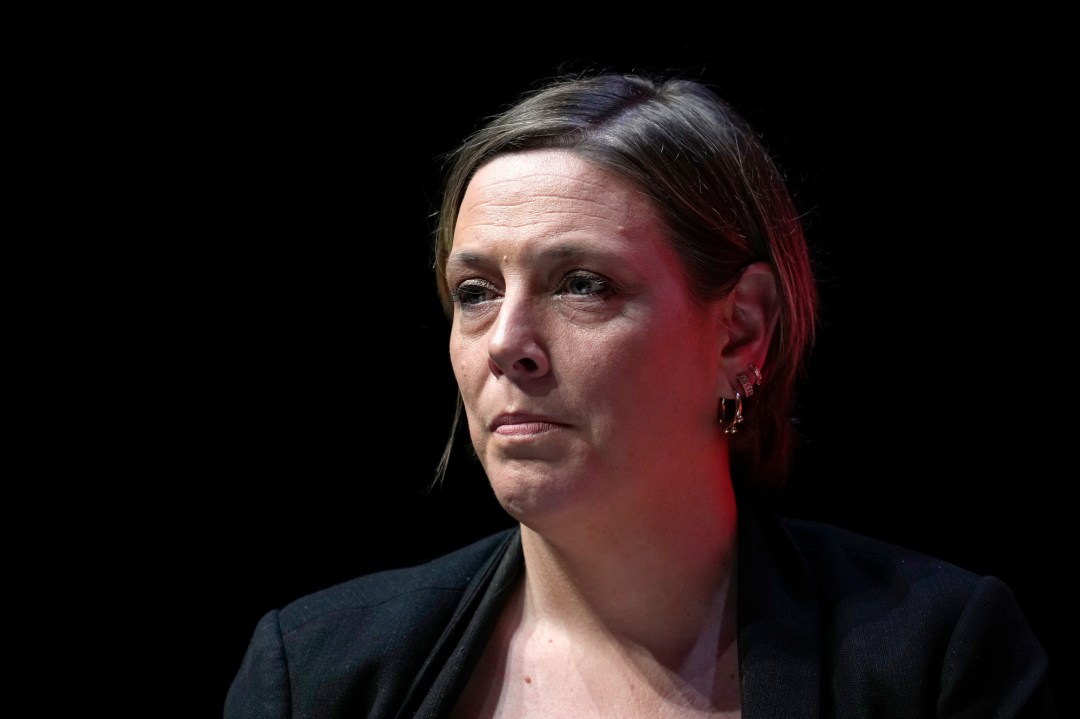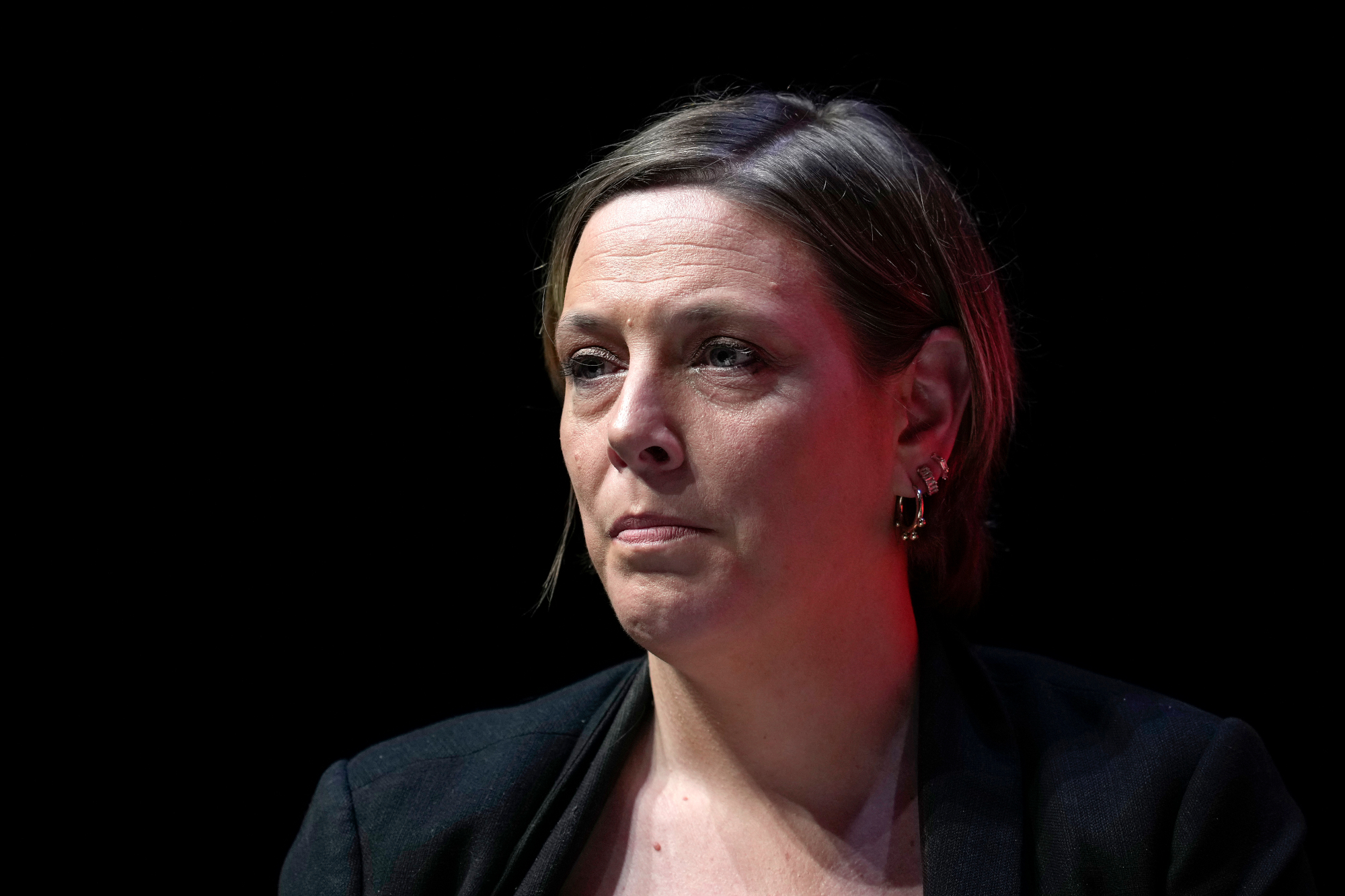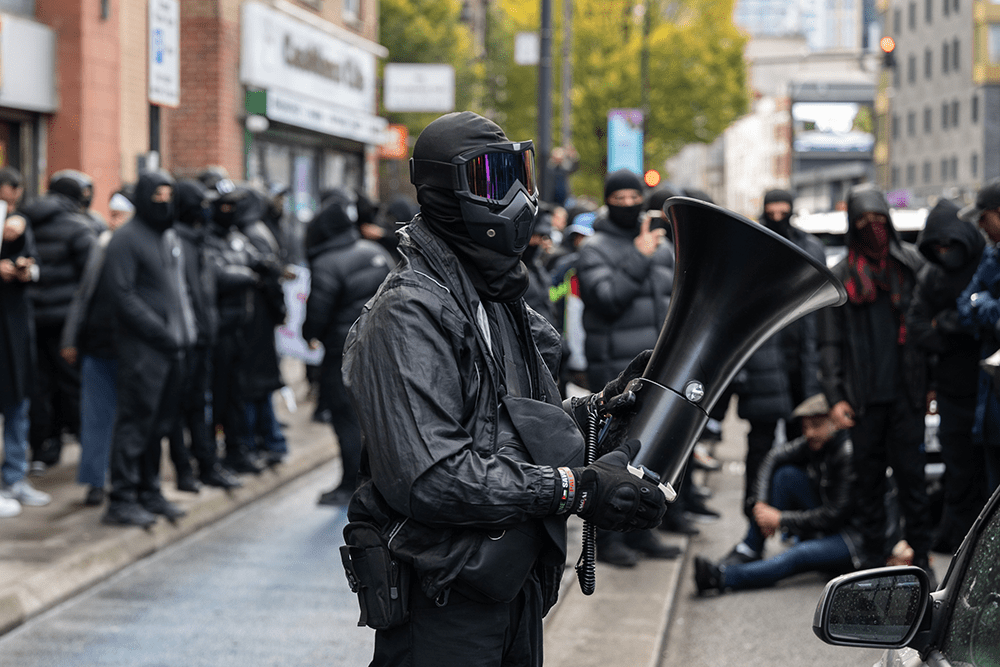In May 2015, the newly elected MP for Birmingham Yardley gave her maiden speech in the House of Commons. Jess Phillips vowed to improve Britain’s ‘response to victims of domestic and sexual violence and abuse in all its forms’.
In the years since, Phillips has certainly made a lot of noise about discrimination and sexual abuse. She has attacked select committees for not having enough female chairs; threated to resign from the Labour party over its response to sexual harassment allegations against her colleagues; and, annually, read out the names in Parliament of every woman killed by a man in the previous 12 months.
Perhaps decades of intersectional fourth wave feminism have rendered Phillips blind to the racial elements of certain types of misogyny
But until this year, her mettle – her willingness to actually support victims of domestic and sexual violence – has never really been tested. But this all changed when she was appointed minister for safeguarding last year.
One of the first things she was asked to deliver after the general election was a violence against women and girls strategy. Initially, this was promised before the end of 2024. Then, after the deadline had been and gone, Labour announced that the strategy would be ready before the summer recess. As the days grew shorter and progress stalled, things were postponed until September, which readers will note has now also passed. The Domestic Abuse Commissioner has expressed concern about the ‘lack of momentum to tackle domestic abuse’. This week, Phillips admitted she was working towards the publication of the strategy ‘as soon as possible’.
Delay seems to be a theme of Phillips’s time in office. In June, when Labour announced a national inquiry into grooming gangs, Phillips was put in charge of the single most important piece of work this government will carry out on behalf of sexual abuse victims: she was tasked with organising an Independent Commission on Grooming Gangs which would carry out targeted investigations in local areas to hold institutions to account for their current and historic failures to protect victims of grooming. Here was a chance to make a real difference. Even though these gangs had been known about since the 1970s, this was the first statutory inquiry with the power to bring those involved to justice.
Phillips failed at the first hurdle. Four months after she was given the job, it seemed as if no progress had been made; there was still no chair. As murmurings of discontent grew louder, the names of the two shortlisted chairs were suddenly leaked. They had backgrounds in social work and policing –two institutions intimately involved in the systematic betrayal of victims, and the cover up being investigated by the inquiry.
Soon, survivors started to resign from the inquiry. Fiona Goddard was the first to go. She revealed that the inquiry had been dominated by ‘secretive conduct’ which risked once again silencing victims. Worst of all, she raised serious concerns about attempts to widen the scope of the inquiry beyond grooming gangs to all child sexual abuse. She said she had documents and emails to prove this. Three other survivors also resigned.
These women had been targeted by predominantly Pakistani grooming gangs. For years they have seen authorities refuse to engage with the religious and ethnic aspects of grooming. As the inquiry progressed, they feared that this was happening again. Proceedings have been handled so badly that one victim, Ellie Reynolds, has now turned to Nigel Farage. She hopes the Reform UK leader will hold the men behind the grooming gangs accountable through his parliamentary inquiry and that his readiness to acknowledge the role played by ethnicity will achieve what the government is failing to.
Reynolds noted that it has taken decades ‘to recognise grooming gangs that are coming over and raping our children because they are white. That is also racially motivated.’ Reynolds does not have faith that this will ever be investigated by Labour.
These criticisms appeared to anger Phillips. Maybe they pricked her self-described ‘massive ego’. After spending an entire career demanding that we ‘believe women’, she resorted to standing up in the chamber and saying suggestions that the scope of the inquiry would be expanded were ‘categorically untrue’. She also denied silencing survivors and argued that not all victims are of the same opinion and want their identities known.
Four survivors are now demanding that she step down. They will not rejoin the inquiry until she does so. Goddard, who was abused by a Bradford-based grooming gang, speaks of how hurt she is by the safeguarding minister’s attempts to brief against her (Phillips says she has ‘spoken to Fiona Goddard many times, and I will continue that relationship with her, should that be what she wishes’).
Phillips is learning that activism doesn’t mesh easily with reality. She was an excellent advocate for women and girls when this demanded media appearances and speeches in the Commons. But when tasked with actually doing something, she has fallen short.
So what happened? Philips has always held a strikingly simple view of sexism. She believes in a nebulous ‘patriarchy’, fuelled by the media and rape culture, responsible for almost all injustices against women and girls. Grooming gangs, and the racial and cultural elements which uniquely affect these cases, don’t fit comfortably in this worldview.
Phillips, above many other MPs, should recognise this. During her general election campaign, she experienced horrific abuse at the hands of campaigners for an Independent Muslim MP campaigning on a pro-Gaza platform. But she never acknowledged the relationship between her experience and radical Islam.
In her view, it seems, the abusers were just men, operating in the context of the patriarchy. In one interview, she claimed: ‘The fact that they were Muslim is not significant, because the Muslim men in my constituency do not behave like this. They did it because they were idiots, not because they were Muslims.’
Perhaps decades of intersectional fourth wave feminism have rendered Phillips blind to the racial elements of certain types of misogyny. Or maybe she is simply keenly aware of how much she needs the Muslim vote to hold on to her parliamentary seat, which she won by 693 votes. Birmingham Yardley was 45 per cent Muslim in 2021. That number will have increased dramatically by 2029.
This has left her unable to confront the reality of grooming gangs. An inquiry will no doubt identify a link between men of Pakistani heritage and group localised child sexual exploitation. When Louise Casey carried out her ‘audit of group-based child sexual exploitation and abuse’ (a smaller inquiry commissioned by Labour in January to try and avoid the need for a national investigation), she concluded that in the police forces examined there is ‘clear evidence of over-representation among suspects of Asian and Pakistani heritage men’. One victim was told by her rapist that ‘we’re here to fuck all the white girls and fuck the government’.
The past 18 weeks have shown that Phillips is not prepared to preside over such an inquiry. I imagine this is why survivors have witnessed persistent efforts to widen the scope. Victims of sexual abuse who were not groomed by gangs have been asked to sit on the liaison panel. If the remit were to be broadened to include non-grooming gang related crimes, any religious and ethnicity related conclusions would be obscured.
This is meant to be an inquiry into ‘grooming gangs.’ So why weren’t all the survivors chosen for the liaison panels apparently victims of grooming gangs? And why were they asked if they would like to widen the scope to other types of abuse? Fiona Goddard, after taking the decision to resign, noted that ‘this is being manipulated away from what it was supposed to be and it’s unfair’. There has already been a wide-reaching inquiry into all types of child sexual abuse – The Independent Inquiry into Child Sexual Abuse, published in 2022 – but grooming gangs have never received the same attention.
Starmer has made it clear that he is behind Phillips. She will continue to lead the inquiry, and survivors are therefore likely to be let down once again. It would be a mistake to look at Phillips’s political career and conclude that she doesn’t care about domestic abuse and sexual violence. But in government, shouting and pointing won’t solve anything. You need to be clear-headed and make difficult decisions. Philips has found this out the hard way.









Comments